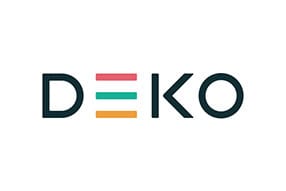
In addition to these concerning lost sales, recent research also revealed that most customers predict that their cart abandonment rate will go up. Currently standing at 70% across all industries, consumers expect this to increase over the next 12 months, according to the Baynard Institute. This could drive the total value of these lost sales to unprecedented levels. In the face of growing losses, merchants must explore how they can prevent customers from abandoning baskets.
One proven way of limiting basket abandonment is to offer flexible payment options. One of the most popular payment options, whose growth has been driven by the rise in eCommerce, is Buy Now Pay Later (BNPL) products. However, although suitable for certain transactions, these products are typically too limited to comprehensively cover all industries and different types of purchases. As a result, many stores are left frustrated at accommodating a product that is not suited to their specific needs.
To combat rising cart abandonment and raise their conversion rates, merchants must provide their clients the flexibility and support they require. They must also understand the payment landscape and choose the BNPL option that meets their needs.
The limitations of traditional BNPL products
The capabilities of BNPL products have evolved throughout time. The biggest change being improved flexibility of repayment terms. However, there remain several issues that traditional BNPL products have so far neglected. These include low acceptance rates and limited coverage for bigger basket sizes.
Merchants in sectors such as furniture, photography, and jewellery (where average order values can run in the thousands) are some examples of industries that are underserved by existing consumer finance solutions. This is because conventional BNPL providers typically cap the maximum spend through finance at a price too low to cover these sectors’ high-ticket items.
This issue is particularly pertinent for merchants who have had to increase their pricing due to rising material costs and supply chain challenges. Consider the furniture industry, where average costs have increased 16.8% over the past year. As a result of this price inflation, more customers are beginning to doubt their capacity to purchase the items they need for their homes. The inability of traditional BNPL providers to cover these basket types and alleviate the financial burden of these large purchases exacerbates the impact of the cost-of-living crisis for both consumers and retailers.
Multi-lender platforms are the next step in this evolution
Providers like Deko, with its panel of lenders and capacity to provide financing up to £25,000, are the payment industry’s future. These providers have a wider spectrum of risk appetite. Their multi-lender platforms can cover bigger basket sizes and also match the right lender with the right customer, increasing the number of approved applications.
Additionally, these platforms lessen the propensity for customers to abandon their online transactions with the aid of a prequalification tool. This tool is easily integrated into an online store and offers customers the opportunity to complete a quick form to find out if they qualify for finance at the start of a purchase journey. This feature can enhance merchants’ interactions with their customers, boost the volume of profitable transactions, and eventually raise revenue.
The acceptance rate increase for BNPL options supported by more than one lender can be up to 40%, as it allows consumers to be matched to a lender most appropriate to their situation. The result? Merchants can assist customers in purchasing more items they want while reducing the likelihood of basket abandonment and a subsequent loss in sales.
Empowering merchants and consumers
Some 92% of the merchants we polled claimed that offering retail financing alternatives for larger basket sizes would benefit their customers. 71% of merchants believe that a multi-lender system will reduce cart abandonment and increase sales. This data demonstrates that merchants agree that a multi-lender BNPL product such as Deko benefits both themselves and their customers.
Whilst a challenging period for businesses and consumers alike, the current state of the economy can serve as an impetus for retailers to adopt the latest technological advances in the payments sector. By doing so, they will crucially find the support that they and their customers need.


























